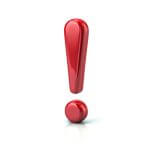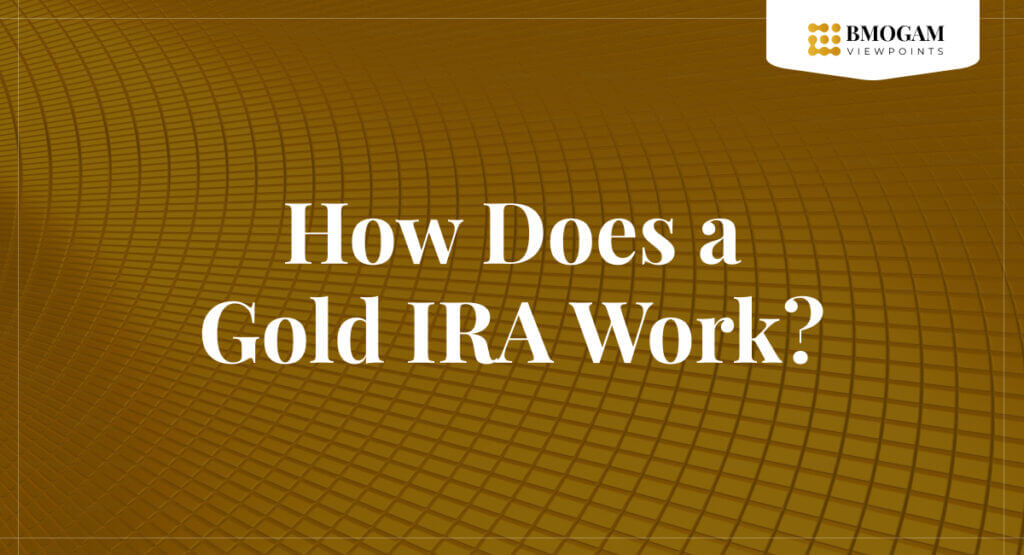Disclaimer: We are reader supported. We may be compensated from the links in this post, if you use products or services based on our expert recommendations. Please read our Advertising Disclosure.
Gold has long been the most coveted of all precious metals, celebrated for its ability to hedge against stock market volatility and inflation.
This yellow metal not only provides stability but has also delivered substantial returns over the long term. Such attributes make gold an attractive investment for many Americans, particularly within their 401(k) or other retirement accounts.
A common question among these investors is whether they can include physical precious metals in their 401(k) portfolios.
As it stands, 401(k) investments are limited to purchasing paper gold through mutual funds or ETFs.
Before we get started with this article:
We understand how difficult it is to pick a company that you can trust with your hard earned savings. That's why we create informative and useful information to give you as much knowledge as possible to make the right decision.

We created a list of our highest recommended investment companies, to make comparing and choosing the company best suited to your needs as easy as possible.
Or...
Get a FREE Gold Investing Packet that explains how to buy gold with your 401k from our #1 recommendation:
Protect Your Wealth - Tax and Penalty Free!
Self-Directed IRA

To buy physical precious metals such as gold or silver, it is necessary to open a self-directed IRA. With a self-directed IRA, you may buy bullion, gold, and silver coins and have a third-party custodian keep them in safe custody.
Precious metal IRAs are great for retirement. These protect your wealth with extremely safe assets and you also get the tax benefits associated with an IRA.
Generally, a recommendation for our readers is to roll over their existing 401k into a gold IRA.
If you start a new IRA and your maximum yearly contribution can only be in the range of $5500-$6500, the yearly storage fees for the precious metals will start cutting down into your retirement savings.
If you have an existing 401(k) plan, you need to find out if an in-service rollover is allowed. If eligible, you might be allowed to move a part of the current employer's 401(k) into a self-directed IRA.
If you decide to leave your current organization through which you have 401(k), it also gives you the option of rolling over your savings into an IRA.
Moving 401(k) into Gold — How to do it?
There are several ways for you to start investing in precious metals. One of the most common ways to acquire physical gold is to start a gold IRA.
If you have an existing 401(k), a part of that can be rolled over into a self-directed IRA and when you have a self-directed IRA, you can acquire physical precious metals with those retirement savings.
Purchasing Gold with 401(k)
Generally, an IRA or a qualified retirement plan does not allow you to hold collectibles such as rare stamps, precious metals, antiques, rare books, or art.
However, certain forms of precious metals such as palladium, platinum, silver, and gold can be acquired through your retirement savings.
The catch here is that the precious metals must be in the form of bars, rounds, and coins and should meet particular standards for quality and size.
Also, a plan trustee is required who will arrange for the purchase, storage, and sale of gold as well as other precious metals. In most cases, this trustee happens to be a metals dealer or broker offering self-directed IRAs and/or 401(k) accounts.
You are unlikely to find a qualified employer offering to make a metal broker the trustee of the account.
Employer Sponsored 401(k) Plans
401(k) plans are guided by the Internal Revenue Code. A certain amount of latitude is granted to the sponsor of the plan (which is usually your employer).
Here is what the sections of the internal revenue code dealing with 401(k) say:
Investing in Gold Substitutes
If the 401(k) plan offered by your employer allows investment in precious metal mutual funds, stocks, and/or exchange-traded funds, you may still invest indirectly in gold through assets that mimic the value of gold.
These assets include:
There are funds such as IAU and GLD that invest in physical gold. When you purchase these funds, you are directly investing in the current price of gold.
The physical gold is stored in many depositories and the ETFs continue to buy or sell gold as per the supply/demand of ETF shares.
There are several ETFs as well as mutual funds that mirror the value of futures and options on gold. You may trade in the future funds and are the options and futures contracts.
There are strict rules attached to the trading of gold contracts on commodity exchanges. While the gold ETFs and future/options contract prices closely mirror the physical gold price, there is always a difference, especially in markets with high volatility.
There are companies involved in the business of mining and refining gold. You can invest in those companies through stock exchanges. There are also ETFs and mutual funds holding a basket of gold-mining shares. You could invest in those mutual funds.
Indeed, the stock value of these companies is greatly affected by the price of gold but there are also other factors at play which means the stock price doesn't always reflect the gold price.
It is relatively less risky to buy a fund for your gold investment as compared to buying individual stocks due to the diversification of the investment across several companies.
If you're searching for the closest substitute to physical gold, it is a physical metal ETF.
Some people still want to physically own their gold coins and bars.
Employees that are offered self-directed 401(k) plans or people who are self-employed can always own physical gold but the best alternative for others who want physical ownership is to start a gold IRA.
Precious Metals IRA
A self-directed precious metals IRA may be opened with a metals broker or dealer (government approved) as the account trustee.
You are allowed to roll over your existing 401(k) into the self-directed gold IRA and that money can be used to acquire certain forms of gold and precious metals.

A big advantage of a direct rollover is that there is no attached tax or penalty for early withdrawal. You need to keep in mind that the annual contribution limit in the case of IRA is much less compared to 401(k) contributions.
Also, you don't get employer contributions in the case of an IRA whereas 401(k) offers that benefit.
If you're interested in physical ownership of precious metals such as gold, there is nothing better than a precious metals IRA.
Only Specific Types of Gold is Allowed in an IRA
When it comes to precious metals IRA, not all the gold can be a part of an IRA or a 401(k). The US code 408 has rules that cover the form of eligible gold. Here is a summary of the rules:
Approved forms of palladium, platinum, silver, or gold bullion are allowed in the form of bars, rounds, and coins.
It is not allowed to invest in numismatic coins.
You may buy US gold coins in certain sizes including 1/10, one quarter, one half, and 1 ounce.
Certain foreign coins with a minimum gold content of 99.5% may also be bought. All the gold bars and rounds need to meet the purity standards as mentioned in the gold contracts traded on commodity exchanges.
It means that they need to be at least 99.5% pure. Also, gold must have originated from either an exchange-approved refiner or a national government mint.
Retirement Account Gold Investment – Rules
In addition to the rules related to purity and size, other rules apply to a gold IRA or 401(k). As per the rules, the trustee needs to be the physical custodian of the precious metals.
These metals should be held in a secure and insured depository.

While there have been many speculations, you should know that the IRS does not allow account owners to hold precious metals including gold.
It is due to this reason that the IRS will find it difficult to monitor the distribution of gold held by owners from their accounts. Distributing that gold creates taxable income.
Another important rule is that gold cannot be contributed to a retirement account and only cash contribution is allowed. However, you're free to roll over gold from one account to another.
Is A Precious Metals IRA Right for You?
You should consider several factors when deciding between a gold substitute and physical gold for a retirement account. Here are a few tips:
Physical gold has certain associated costs such as storage and insurance whereas no such costs are associated with substitutes.
There have been several such instances where precious metal investment schemes with stocks that have taken money from investors for buying gold but they disappeared after that.
There is much less likelihood of fraud happening with a precious metals IRA as there is account insurance and tight regulations.
Physical ownership of gold provides peace of mind to some people. For instance, if you are not sure about the value of paper money, you would want to own your gold.
This is why physical ownership of gold is considered better even though you do not directly hold it.
When it comes to price tracking, you could only trust physical gold as it perfectly matches the physical gold price. On the other hand, gold substitutes always have some price risk which may be negligible in some cases but substantial in others.
When it comes to liquidity, it is always going to take some time in the case of IRA gold. For selling the gold or other precious metals in your account, you will need to place an order with your chosen gold broker.
The broker will then get hold of the gold from the depository. They will need to find a buyer and once they get the money from the buyer, those sale proceeds will need to be deposited into your account.
This whole process is likely to take a few days and that could be a problem in case you want to sell your gold immediately due to some news affecting the gold price.
On the other hand, you won't have any such delays with a gold substitute such as a mutual fund. If you want immediate access to your investment, you could sell your ETF shares or stocks through a brokerage account.
You can get a Free Gold Investors Guide, that will walk you through how to buy gold with your 401k from our top gold and precious metals company recommendation by clicking the link above or you can read our article of the top companies we reviewed this year:
>> CLICK HERE to read our list of the Top Gold IRA Companies. <<

I started BMOGAM Viewpoints as a way to compile all my views on investing in one place. I own my home, have some real estate, and own a few stocks like most people, but what really drives my interest in investing is I have a strong love of precious metals, especially gold.



